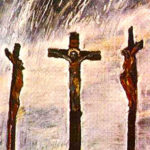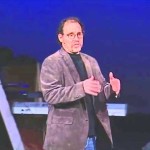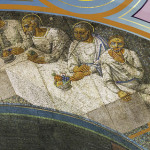We run our website the way we wished the whole internet worked: we provide high quality original content with no ads. We are funded solely by your direct support. Please consider supporting this project.
Open Theism Timeline
Open Theism Timeline by Tom Lukashow
An argument that is frequently raised against the open view is that it is a recent innovation. Paul Eddy had discovered Calcidius, a fifth century advocate, and I and others knew of L.D. McCabe and Billy Hibbard, two 19th century advocates. But that was about it – until I met Tom Lukashow.
Tom is a lawyer in Florida who has spent much of his spare time over the last thirty years researching the history of the open view. And what he has discovered is, at least to me, absolutely amazing! In preparation for the Open2013 Conference that will be held at Woodland Hills Church next week, I asked Tom if he could bring all his research together into one single annotated time line, and he has graciously obliged.
And now I share it with you. On this chart you will find that from 1642 up to the 1941, there has been a steady stream of scholars advocating the open view. I have not read all of these works, but those I have read– e.g. Fancourt (1720’s-30’s) Ramsey (1748), Bromley (1820), McCabe (1870’s), Brents (1874) and a few others – defend this view using many of the same arguments that advocates of openness today use. In fact, I’ve found in several of the works Tom has sent me several arguments I’ve not seen before. More importantly, this chart demonstrates that the open view is just about as old as Protestantism is! It can therefore no more be dismissed as an innovation than can Lutheranism, Calvinism or any other expression of the Protestant faith.
We should all tip our hats to Tom Lukashow. His tireless labor has done us all a tremendous service! Thank you Tom!
Category: Essays
Tags: Essay, Open Theism, Tom Lukashow, Woodland Hills Church
Topics: Open Theism
Related Reading

Could the God of Open Theism Have Foreknown the Crucifixion was Going to Happen? (podcast)
Greg talks about a really really really smart and good God in a really really really bad world against a not-quite-as-smart adversary. Episode 540 http://traffic.libsyn.com/askgregboyd/Episode_0540.mp3

Sermon: Reframing the Sun
In our clip from this weeks sermon, Greg Boyd talks about how we respond to misfortunes and tragedies depends on how we frame them. In Colossians 3, Paul writes that Christ is all and is in all. When we frame our life within this understanding, we begin to see how we can live through misfortunes…

What is the significance of Jeremiah 18:7–11?
The Lord states that “if that nation, concerning which I have spoken, turns from its evil, I will change my mind about the disaster that I intended to bring on it.” But if a nation which he has declared he will bless “does evil in my sight…I will change my mind about the good that…

The Open View of Messianic Prophesies
Image by Lawrence OP via Flickr A number of passages speak of particular events being foreknown by God, even events resulting from individuals’ free will. For example, dozens of prophesies in the OT accurately predict details about the coming Messiah (e.g., he would be born in Bethlehem; arise out of the lineage of Abraham; be executed with…

What is the significance of 1 Chronicles 21:7–13?
The Lord gives David three options of how Israel may be judged. “Three things I offer you; choose one of them, and I will do it to you.” Paralleling 2 Samuel 24:12–16, this passage reveals that the Lord gives people genuine alternatives and then responds to their choices. If the future is unalterably settled in…

Corroborating Historical Evidence of the New Testament
One often finds skeptics arguing that if the events recorded in New Testament actually took place, we should expect to find others of the time mentioning them. Yet, they argue, we find nothing but silence outside the New Testament, which suggests that the New Testament is largely, if not completely, legendary. In this essay I’ll…
